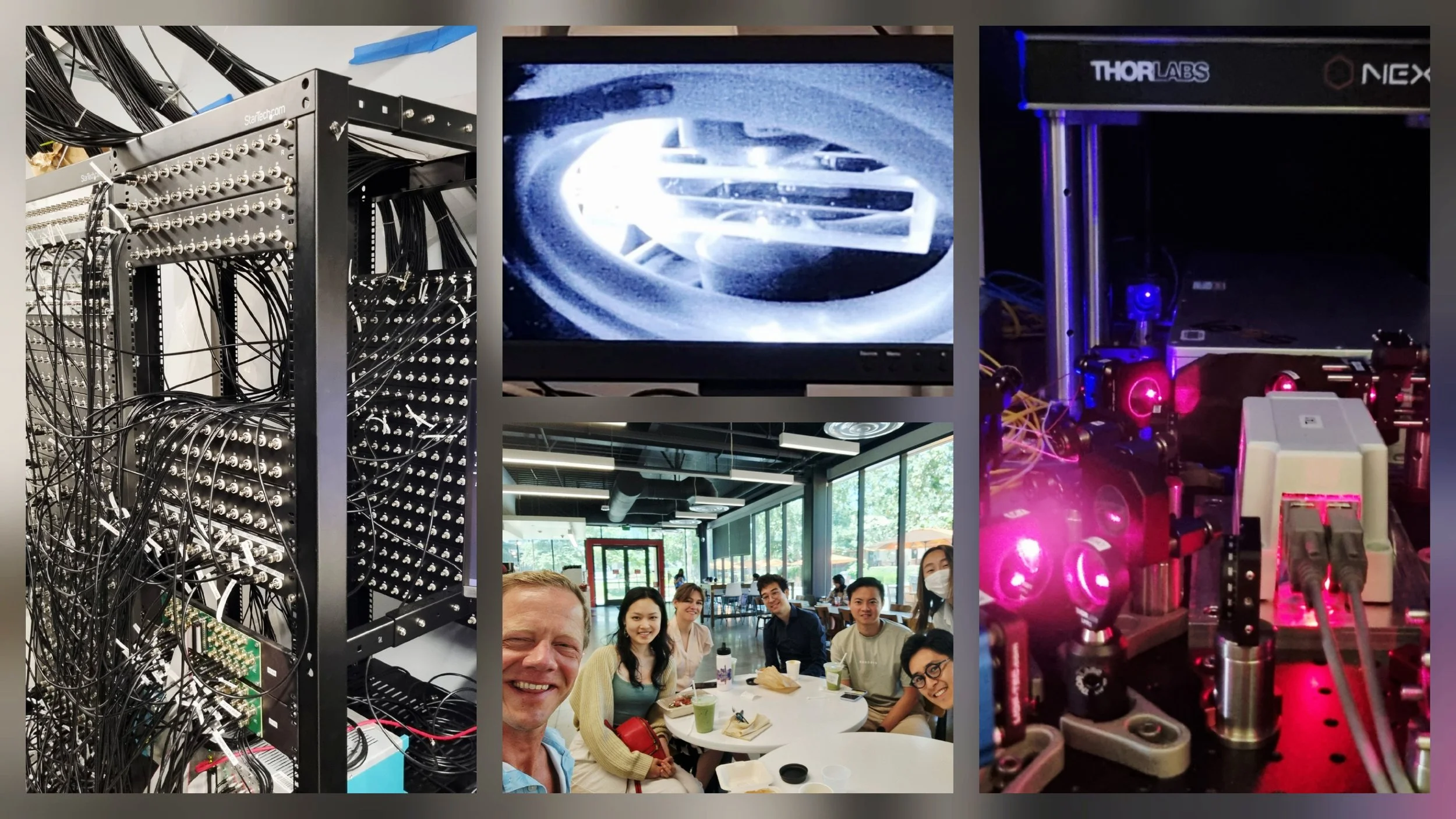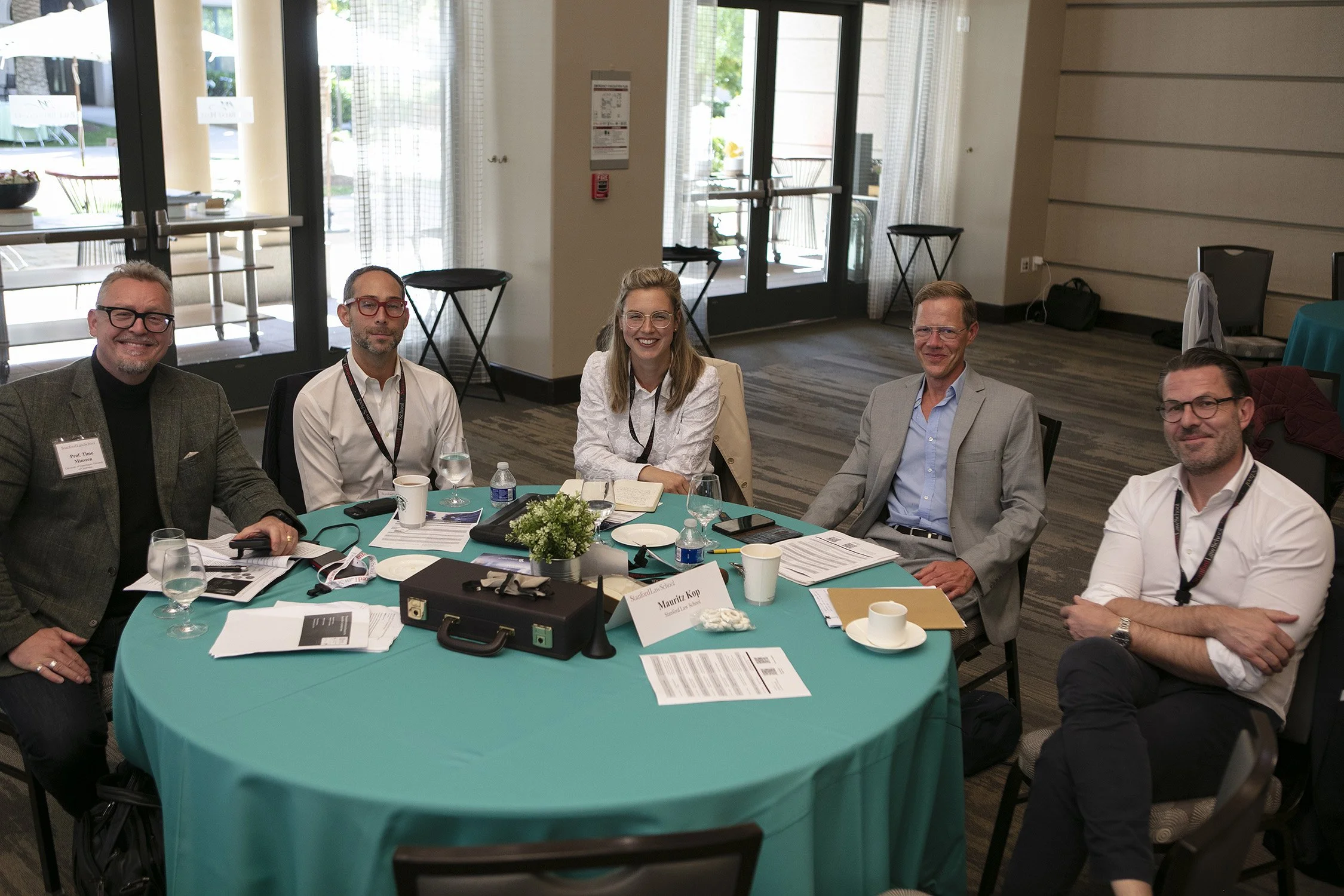Abu Dhabi, Nov. 22, 2024—Professor Mauritz Kop, the Founder and Executive Director of the Stanford Center for Responsible Quantum Technology, was invited to speak at the XPANSE 2024 forum in the captivating city of Abu Dhabi. His involvement represented a significant contribution to the global dialogue on the future of exponential technologies. Held from November 20th to 22nd, the festival-style event at the ADNEC Centre convened international experts to establish a forward-looking agenda for technology governance and development. The forum was structured as an "ecosystem-building engine" intended to guide the next phase of development for industries and societies.
XPANSE, hosted by ADQ and developed in partnership with the international think tank MATTER, brought together approximately 2,500 participants. The attendees included Nobel Prize Laureates such as Sir Roger Penrose, Steven Chu, and Anton Zeilinger, as well as industry leaders, government ministers, and scientists. The agenda covered a wide range of exponential technologies, including quantum computing, artificial general intelligence (AGI), genomics, fusion energy, and brain-machine interfaces. The initiative functions as a continuous, year-round program designed to connect scientific research with leadership, policy, and investment on a global scale. Special recognition is due to Dr. Zina Jarrahi Cinker, Chief Creator of XPANSE, for her exceptional work in organizing this seminal event.
Charting the Course for Responsible Quantum Governance
A central component of Professor Kop's participation was his role on the high-level panel, "Global Policy Frameworks for Quantum Technology." The session addressed the need for proactive governance frameworks for emerging quantum technologies, drawing lessons from the development of prior technological waves like the internet and artificial intelligence. The objective was to outline adaptive and principled regulatory structures that support innovation while ensuring societal safeguards.
Professor Kop was joined on the panel by a distinguished group of colleagues. The discussion was moderated by Fabienne Marco, Director of the Quantum Social Lab at the Technical University of Munich (TUM), and featured insights from Professor Urs Gasser, Dean of the TUM School of Social Sciences and Technology, and Dr. Hoda Al Khzaimi, Associate Vice Provost of Research Translation and Innovation at New York University Abu Dhabi. The collaboration with TUM's think tank highlighted the importance of international cooperation in this field.
Quantum Meets Fractal Geometric Art at the Intersection of Art, Infinity, and Intuition
In addition to the policy discussions, Professor Kop presented his "Quantum Meets Fractal Geometric Art" installation. This performance, held on the Main Stage in the Imaginarium’s Enchanted Forest, was designed as an immersive experience exploring the connections between mathematics, art, and physics. The installation had previously been performed at the TUM Festival of Ideas event in Munchen, Germany in November 2023 and at the Stanford RQT Conference in May 2024.
Mauritz Kop Featured Quantum Expert in The Innovator Interview
Professor Kop's perspectives were further disseminated through an interview with Jennifer Schenker of The Innovator. This conversation provided a platform to deliver clear, actionable recommendations for preparing for the quantum era to a global audience of leaders.
He outlined the broad scope of quantum technologies, including computing, sensing, networking, and quantum-AI hybrids. He linked these technologies to the United Nations' Sustainable Development Goals (SDGs), illustrating their potential to address major global challenges in areas such as medicine, carbon capture, and climate modeling.
His primary message to the corporate sector was direct: "I advise corporates to invest heavily both in quantum and quantumAI today to get ahead of the curve and to start learning about its responsible use to remain compliant." He emphasized the need for "quantum literacy" among leaders and cautioned governments against overly restrictive regulations, such as broad export controls, that could impede innovation. He advocated for "planetary thinking" and smart, pro-innovation regulation tied to established technical safety and interoperability standards.
Meer lezen











